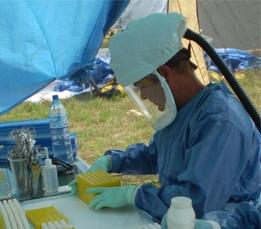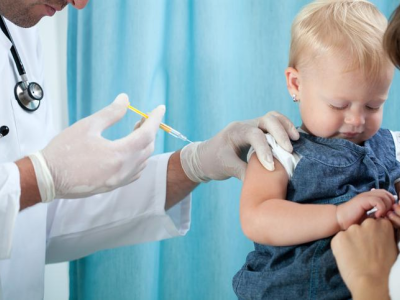The Ebola virus outbreak in Guinea and Liberia is one of the most challenging of its kind due to unique features and challenges, such as the wide geographic scope of the area and the involvement of a major urban area, health officials from the World Health Organization (WHO) said today.
Though they expect case numbers to grow over the next 2 to 4 months, most of the illnesses can be traced to chains of transmission, a situation fueling cautious optimism about getting a foothold on the threat to West Africa and other nations.
Focusing on facts, not rumors
At a media telebriefing in Geneva today, Keiji Fukuda, MD, the WHO's assistant director-general for health security and environment, said another challenge is that even though the disease can be contained by limiting exposure to body fluids and close contact with infected patients, the highly lethal nature of the disease provokes a great deal of fear, anxiety, and rumors that pose challenges in communicating about the disease.
"It's important to get out as much accurate information as possible, so people have facts to work with and not just rumors," he said, crediting several organizations that are helping with the outbreak, such as Doctors Without Borders (MSF), the Pasteur Institute, the US Centers for Disease Control and Prevention, and the International Federation of the Red Cross.
Health officials said several countries have provided financial support, and they praised other African nations for stepping up to offer their expertise in responding to Ebola outbreaks, the first to surface in West Africa.
Fukuda also said a large number of cases in a large city—in this instance, Conakry, Guinea's capital—has also been an unusual feature of this Ebola outbreak.
Latest outbreak numbers
Stephane Hugonnet, MD, MSc, a medical officer from the WHO's department of global preparedness who returned from working in Guinea a few days ago, said the latest outbreak numbers from there include 157 confirmed or suspected Ebola virus disease (EVD) illnesses, including 101 deaths. So far 67 of the cases are lab-confirmed, and 20 of them from Conakry.
In Liberia so far, 21 confirmed or suspected EVD cases have been detected, 10 of them fatal, he said. Five cases are lab-confirmed, and all of them were fatal. A hunter who was recently reported to have viral hemorrhagic fever symptoms with no known links to other EVD cases has tested negative for Ebola.
Mali has nine suspected cases, and so far tests on samples from two patients were negative for EVD, he said, adding that tests are under way on samples from some of the other cases.
So far Guinea and Liberia are the only two affected countries, Hugonnet said, urging reporters to focus on the trends rather than the case numbers, which change every day. New cases linked to transmission chains are occurring, and the main priorities are identifying illnesses, treating patients, and preventing infections in contacts, including healthcare workers, he said.
Though there is no specific treatment for EVD, clinical management consists of rehydration, pain management, electrolyte balancing, and nutrition, he said. "Ebola is a wasting disease."
Next steps, key challenges
One of the next steps is to more actively look for cases by going to villages and doing follow-up of contacts. "That's critical for interrupting the transmission chain," Hugonnet added.
A key challenge is social mobilization activities that help people in Guinea understand what health officials are doing, why public health steps are being implemented, and what they can do to help, he said.
An attack on an MSF isolation center in Macenta a few days ago, plus threats against the other MSF isolation unit in Gueckedou are serious incidents that have been seen in other Ebola outbreaks and are related the fear of the disease and people's suspicions about what is happening in the units, Hugonnet said.
The mortality rate for the disease is extremely high, and people sometimes see little benefit of being separated from their families and being treated in a center, he said, adding that it's important to explain the importance of symptomatic care and limiting transmission to others.
MSF, in a statement yesterday that addressed the attack on its Macenta center, said several patients have been discharged from the units after being successfully treated for the disease. It said it temporarily suspended activities in Macenta after local people threw stones at buildings and vehicles, under the mistaken impression that MSF brought the disease to the area. It said no MSF team members were hurt and that negotiations are ongoing with local officials to reopen the center, where two patients remain under the care of a health ministry doctor.
Hugonnet said anthropologists are at work in Guinea—for example, attending funerals and ambulance transport—to help teach people about what's being done to address the outbreak and what they can do to minimize their risk.
Fukuda said the WHO's outreach activities also include having a local representative on hand in Guinea to provide information about the outbreak to local media outlets.
See also:
Apr 8 WHO press briefing audio file
Apr 7 MSF press release






















